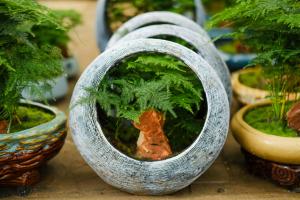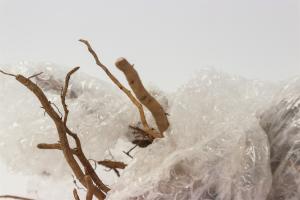Introduction
Carnivorous plants are known for their specialized adaptation to grow in nutrient-poor environments. Although they may seem like a novelty, these plants have also been used as a natural method for pest control. In this article, we will explore the benefits of carnivorous plants in pest control and whether they are a viable option for home gardeners.
How Do Carnivorous Plants Work?
Carnivorous plants have developed unique mechanisms to trap and digest insects to supplement their nutrient requirements. For example, the Venus flytrap has two modified leaves that contain trigger hairs. When an insect touches these hairs, the leaves snap shut, trapping the insect inside. The plant then secretes digestive enzymes to break down the insect and absorb the nutrients. Other carnivorous plants, such as the pitcher plant, lure insects into a deep cavity filled with a digestive liquid. These plants have evolved to attract, trap, and digest insects with incredible efficiency.
Carnivorous Plants as Pest Control
Carnivorous plants have been used for centuries to control pests in various settings, from agricultural fields to residential gardens. Given that these plants are selective in the insects that they trap, they pose little to no risk to beneficial insects or other wildlife. Additionally, unlike chemical pesticides, carnivorous plants have no harmful effects on the environment or human health.
One study found that Venus flytraps can reduce the population of the sweet potato whitefly, a common pest in agricultural production, without the use of chemical insecticides. The researchers observed that the Venus flytraps caught and digested large numbers of whiteflies, leading to a significant reduction in their population. Pitcher plants have also been shown to control various flying insects such as mosquitoes and fruit flies.
Carnivorous Plants in the Home Garden
If you are interested in incorporating carnivorous plants into your home garden, there are a few things to keep in mind. First, it's important to choose the right plant for your area and growing conditions. Carnivorous plants have specific light, soil, and water requirements that must be met for them to thrive. It's also crucial to avoid overfeeding your plants as this can damage their root system.
Another consideration is that carnivorous plants are not a one-size-fits-all solution for pest control. While they are efficient at reducing the population of certain pests, they may not be effective against others. Additionally, some pests may not be attracted to carnivorous plants, making them an unreliable solution for complete pest control.
Conclusion
Carnivorous plants are fascinating organisms that can benefit pest control in certain situations. They offer a natural, pesticide-free option for controlling pests in both agricultural and home settings. However, it's important to remember that these plants are not a one-stop solution for pest control and should be used in conjunction with other pest management strategies. With careful consideration and proper care, carnivorous plants can be a valuable addition to any pest management plan.

 how many times do yo...
how many times do yo... how many planted tre...
how many planted tre... how many pine trees ...
how many pine trees ... how many pecan trees...
how many pecan trees... how many plants comp...
how many plants comp... how many plants can ...
how many plants can ... how many plants and ...
how many plants and ... how many pepper plan...
how many pepper plan...





























